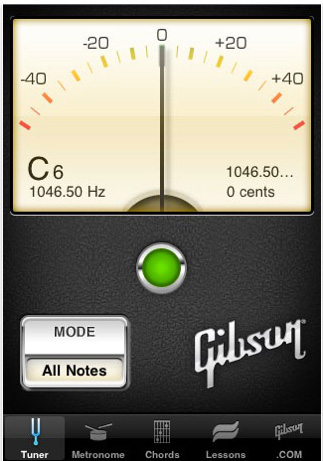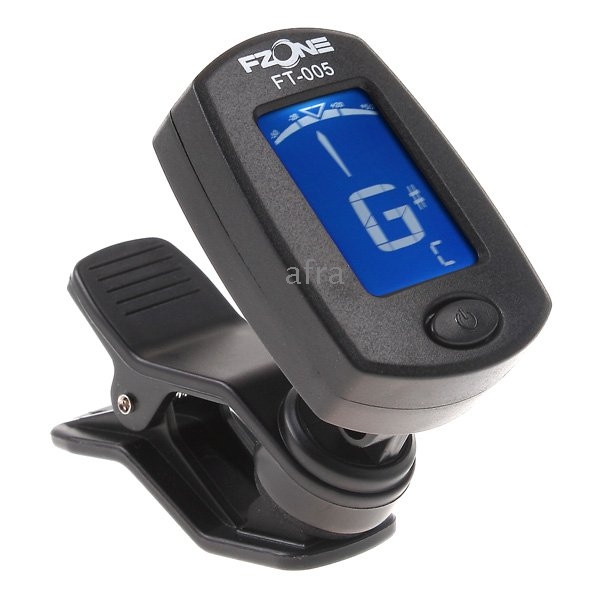
If you choose to go down the pedal route, you'll be faced with this question - does it matter if the pedal is true bypass or buffered? Is true bypass important for a guitar tuner? Getting your phone out mid-set to tune up your guitar isn't the most professional-looking move in the world, and it won't be as accurate as a pedal or clip-on alternative. While perfect for bedroom practice sessions, this type of tuner is not the one to use if you're out gigging. The new kid on the tuning block involves using an app on the phone or iPad you're possibly reading this article on now. Place it in the chain in the desired location – usually at the start – and it'll sit there quietly doing its job whenever called upon. Your tuner will likely find a home among your other pedals and is the pinnacle of set-and-forget, but knowing that it won’t fall apart or give an inaccurate readout is crucial. With a pedal tuner, you're looking for durability and accuracy. Pedal tuners are definitely the most popular choice. These tuners were once cheap and cheerful, and never held their own outside of the practice room, but nowadays they can boast some seriously useful tech making them a great option if you don’t use pedals. They clip on to the headstock of the guitar and interpret intonation through vibration. Headstock tuners are often desired for their simplicity as much as their scaled down designs - making them perfect for a beginner or someone who has never used a tuner before.

That being said, tuning via mobile devices has improved immensely in recent years and can be hard to beat in terms of convenience for those who do most of their playing at home. Tuners often fall into one of a small number of categories – pedal or headstock. Should I use a pedal tuner, headstock tuner or app? Clever, huh? Those displays can take a bit of getting used to but once you do you’ll find tuning on the fly much easier. Polyphonic tuners - A more recent design, allowing you to play all six strings together, with a display showing how in or out of tune all six are at once.
#FREE GUITAR TUNER IMAGE PRO#
They're certainly not necessary for beginners, but pro players and guitar techs swear by them. Strobe tuners - These tend to be the most accurate tuners of all – usually reflected in a higher price.Luckily, chromatic tuners tend to be the cheapest - so there’s more money left over for beer. Very useful indeed, but you’ll be playing one note at a time to tune. ‘Chromatic’ just means that the tuner only identifies one of the 12 notes of the chromatic scale in Western music. Chromatic tuners - The most common type of tuner - this is likely the place you’ll start.Get to grips with what they are and how they work, and you’ll find it much easier to choose the best guitar tuner for you: When it comes to guitar tuners, there are three main types that you'll come across.

The tuner market comes with what we’d call a 'good limitation' – meaning there aren't hundreds of different variations to choose from. (Image credit: Future) What are the different types of guitar tuners?īuying yourself the best guitar tuner is, thankfully, not as complex as buying a new overdrive pedal, chorus pedal or reverb pedal. Being able to tune all your strings in one go can save time too. Making subtle improvements to previous models, it’s super reliable, accurate and easy to read. There are some fantastic choices on offer, but if we had to pick the best guitar tuner available today, we’d probably opt for the TC Electronic Polytune 3.
#FREE GUITAR TUNER IMAGE PLUS#
We’ve put together our list of the best guitar tuners, plus some useful buying advice to ensure that no one has to endure an out of tune Stairway To Heaven again.

#FREE GUITAR TUNER IMAGE FREE#
You really don’t have to spend a lot either - there are even free guitar tuner options included in this guide. Many players can tune by ear, but a good tuner is usually more accurate, plus it means you’re not having to shush the audience to hear yourself when playing live. A band being incredibly in tune with one another can also help them sound tighter. A guitar tuner makes sure that all of your strings (whether you play electric, acoustic, bass or ukulele) are in tune with each other, so that when you play a chord, the intervals within it are ringing out as they should, resulting in something that hopefully sounds good! The best guitar tuners become even more crucial when playing with other musicians - there’s nothing worse than you all playing the same thing and one of you is slightly out of tune.


 0 kommentar(er)
0 kommentar(er)
